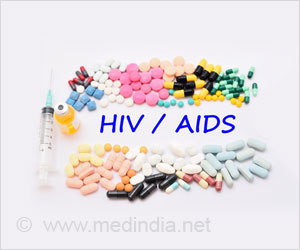Scientists say that a protein in the saliva of deer ticks prevents the HIV-1 virus from attaching to a group of white blood cells called T cells.
Scientists at the University of Massachusetts Amherst say that a protein in the saliva of deer ticks prevents the HIV-1 virus from attaching to a group of white blood cells called T cells, which form the body’s first line of defence in fighting infections.
Targeting T cells is the critical first step in the virus’ attack strategy.Writing about their findings in the journal Biochemical and Biophysical Research Communications, the researchers said that the protein also suppresses the activity of T Cells, which may be useful in treating autoimmune diseases like Lupus and Asthma, and in preventing the rejection of transplanted organs.
When the HIV-1 virus enters a human host, it attaches to the surface of T cells before fusing with the cell membrane and injecting its DNA into the nucleus.
“This allows the virus to use the machinery of the T cell to copy itself and multiply,” says Juan Anguita of the UMass Amherst department of veterinary and animal sciences.
“Deer ticks, which are carriers of Lyme disease, produce a protein that can interfere with the initial attachment of the HIV-1 virus, which could lead to new treatments that stop the infection process before it begins,” the researcher added.
According to the researchers, deer tick saliva contains the protein Salp15, which stops T cells from activating by binding to a specific site on their surface called the CD4 receptor.
Advertisement
“Salp15 binds to proteins in the CD4 receptor that are furthest from the cell membrane in both mouse and human cells. This region overlaps with the binding region used by a protein on the envelope of the HIV-1 virus called gp120, making Salp15 one of several potential molecules being studied as entry-targeting inhibitors,” says Anguita.
Anguita was also part of a study performed in cooperation with the Vermont Lung Center and the University of Vermont, which showed that Salp15 inhibited the development of asthma in mice.
The researcher believes that Salp15 may lead to treatments for HIV-1, transplant rejection and autoimmune diseases with fewer side effects than traditional medications like steroids and protease inhibitors, partly because its action is very specific.
“HIV-1 and transplant patients are on powerful medications for life, and most of these have secondary effects like nerve damage and liver problems. This makes the development of new treatments an important area of research,” says Angiuta.
Source-ANI
SRM/M







